![Demons Of The Mind (Doubleplay) [Blu-ray]](/pictures/1144973.jpg) Demons Of The Mind (Doubleplay) | Blu Ray | (30/10/2017)
from £15.49
| Saving you £N/A (N/A%)
| RRP
Demons Of The Mind (Doubleplay) | Blu Ray | (30/10/2017)
from £15.49
| Saving you £N/A (N/A%)
| RRP Baron Zorn (Robert Hardy) believes his son Emil (Shane Briant) and daughter Elizabeth (Gillian Hills) are suffering from a madness they inherited from their late mother. He keeps his children locked up, but at night Emil is released and murders women in the local village. Discredited psychologist Falkenberg (Patrick Magee - Dementia 13, The Masque of the Red Death) analyses the family and it transpires that the children witnessed their mother cut her own throat. The villagers, driven on by a manic priest (Michael Hordern) identify Zorn as the demon' responsible for killing their daughters. The deranged Emil escapes with Elizabeth, but the murderous Zorn pursues them. Blood, he vows, will have blood One of the most ambitious and unusual horror films produced by Hammer, Demons of the Mind was directed by Peter Sykes (Venom, To the Devil a Daughter) and released in 1972. The distinguished cast includes Shane Briant, who would go on to appear in three further films for Hammer. EXTRAS: NEW FEATURETTE - Blood Will Have Blood: Inside Demons of the Mind ORIGINAL TRAILER
![The Maltese Falcon [1941]](/pictures/1013278.jpg) The Maltese Falcon | DVD | (01/06/2006)
from £6.78
| Saving you £7.21 (106.34%)
| RRP
The Maltese Falcon | DVD | (01/06/2006)
from £6.78
| Saving you £7.21 (106.34%)
| RRP The Maltese Falcon is still the tightest, sharpest, and most cynical of Hollywood's official deathless classics, bracingly tough even by post-Tarantino standards. Humphrey Bogart is Dashiell Hammett's definitive private eye, Sam Spade, struggling to keep his hard-boiled cool as the double-crosses pile up around his ankles. The plot, which dances all around the stolen Middle Eastern statuette of the title, is too baroque to try to follow, and it doesn't make a bit of difference. The dialogue, much of it lifted straight from Hammett, is delivered with whip-crack speed and sneering ferocity, as Bogie faces off against Peter Lorre and Sidney Greenstreet, fends off the duplicitous advances of Mary Astor, and roughs up a cringing "gunsel" played by Elisha Cook Jr. It's an action movie of sorts, at least by implication: the characters always seem keyed up, right on the verge of erupting into violence. This is a turning-point picture in several respects: John Huston (The African Queen) made his directorial debut here in 1941, and Bogart, who had mostly played bad guys, was a last-minute substitution for George Raft, who must have been kicking himself for years afterward. This is the role that made Bogart a star and established his trend-setting (and still influential) antihero persona. --David Chute END
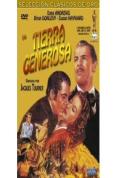 Canyon Passage | DVD | (03/09/2007)
from £16.51
| Saving you £-3.52 (N/A%)
| RRP
Canyon Passage | DVD | (03/09/2007)
from £16.51
| Saving you £-3.52 (N/A%)
| RRP Adventure awaits when a pack-mule express owner (Dana Andrews) escorts a young woman (Susan Hayward) home to a remote Oregon town.
![Operation Pacific [1951]](/pictures/1002404.jpg) Operation Pacific | DVD | (21/07/2003)
from £8.27
| Saving you £5.72 (69.17%)
| RRP
Operation Pacific | DVD | (21/07/2003)
from £8.27
| Saving you £5.72 (69.17%)
| RRP Submarine commander Duke Gifford feels guilty in the death of his former commanding officer, as well as about his failed marriage. These issues pull at him during a hazardous mission against the Japanese in World War II.
![So Dear To My Heart [1948]](/pictures/1008877.jpg) So Dear To My Heart | DVD | (21/07/2003)
from £8.38
| Saving you £10.87 (152.67%)
| RRP
So Dear To My Heart | DVD | (21/07/2003)
from £8.38
| Saving you £10.87 (152.67%)
| RRP One of Walt Disney's most beloved film classics So Dear To My Heart brilliantly blends live action and animation to tell a heartwarming story the whole family will cherish. The fun begins when Danny a rejected and mischievous black lamb is adopted by a determined young boy named Jeremiah (Bobby Driscoll). While drawing a picture of Danny in his scrapbook Jeremiah daydreams of winning first prize in a local contest. Then from his drawings Danny and other animal pictures magica
![On The Waterfront [1954]](/pictures/1012927.jpg) On The Waterfront | DVD | (10/12/2001)
from £6.26
| Saving you £3.73 (59.58%)
| RRP
On The Waterfront | DVD | (10/12/2001)
from £6.26
| Saving you £3.73 (59.58%)
| RRP Marlon Brando's famous "I coulda been a contenda" speech in On the Water Front is such a war horse by now that a lot of people probably feel they've seen the film already, even if they haven't. And many of those who have seen it may have forgotten how flat-out thrilling it is. For all its great dramatic and cinematic qualities, and its fiery social criticism, Elia Kazan's has created one of the most gripping melodramas of political corruption and individual heroism ever made in the United States, a five-star gut-grabber. Shot on location around the docks of Hoboken, New Jersey, in the mid-1950s, it tells the fact-based story of a longshoreman (Brando's Terry Malloy) who is blackballed and savagely beaten for informing against the mobsters who have taken over his union and sold it out to the bosses. (Karl Malden has a more conventional stalwart-hero role, as an idealistic priest who nurtures Terry's pangs of conscience.) Lee J Cobb, who created the role of Willy Loman in Death of Salesman under Kazan's direction on Broadway, makes a formidable foe as a greedy union leader. --David Chute, Amazon.com
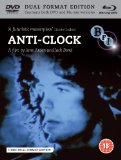 Anti-Clock (DVD + Blu-ray) | Blu Ray | (13/08/2012)
from £20.79
| Saving you £2.20 (10.58%)
| RRP
Anti-Clock (DVD + Blu-ray) | Blu Ray | (13/08/2012)
from £20.79
| Saving you £2.20 (10.58%)
| RRP Anti-Clock, Jane Arden and Jack Bond's last collaborative work, mixes pioneering video techniques with pin-sharp colour footage in order to create a densely woven, dream-like narrative which explores issues of personal identity and social conformity. Based on Jane Arden's extraordinary writings on the limitations of rational thought, this groundbreaking films has remained unseen since its last public screening in 1983 and is presented here in a new transfer from the original 16mm negative, along with a selection of never-before-seen special features.
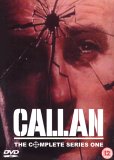 Callan - Series 1 Box Set | DVD | (03/09/2001)
from £N/A
| Saving you £N/A (N/A%)
| RRP
Callan - Series 1 Box Set | DVD | (03/09/2001)
from £N/A
| Saving you £N/A (N/A%)
| RRP Introduced in "A Magnum for Schneider", the hour-long 1967 Armchair Theatre episode of Callan written by James Mitchell about a disillusioned British secret agent of the same name (starring Edward Woodward), went on to offer four popular (if downbeat) series, a spin-off movie remaking the original story and a some-years-later wrap-up play "Wet Job". Remembered for its very distinctive opening titles, with a swinging broken-light bulb and a memorable theme tune, the series adopted a Deighton-LeCarré approach to the grim, treacherous, grubby business of Cold War espionage and made a TV star of the intense Woodward as the sweaty, sometimes conscience-stricken, sometimes robotic Callan. Even in the 21st century this still seems as strong, its complex stories and impressive performances outweighing a low-budget mix of video and film in the production that makes it seem less "professional" than other shows of the time. A great deal of the series opener is devoted to bringing on new regulars. There's a fresh Mr Hunter who, like Number Two on The Prisoner--with which Callan shares series editor George Markstein--was a title not a name, so several actors held the position over the course of the show. There's also the trendily mulleted thug Cross (Patrick Mower), who would go spectacularly off the rails in the next series and a half. In a dramatic device that has long since fallen out of fashion in television, Callan episodes tend to wind up by leaving the audience to work out all the connections of the plot while Callan himself sits gloomily and ponders the wretchedness of his squalid world. --Kim Newman
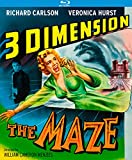 MAZE 3D (1953) - MAZE 3D (1953) (1 Blu-ray) | Blu Ray | (24/04/2018)
from £N/A
| Saving you £N/A (N/A%)
| RRP
MAZE 3D (1953) - MAZE 3D (1953) (1 Blu-ray) | Blu Ray | (24/04/2018)
from £N/A
| Saving you £N/A (N/A%)
| RRP ![The Big Trees [1952]](/pictures/1011915.jpg) The Big Trees | DVD | (04/10/2004)
from £N/A
| Saving you £N/A (N/A%)
| RRP
The Big Trees | DVD | (04/10/2004)
from £N/A
| Saving you £N/A (N/A%)
| RRP A remake of 'Valley Of The Giants' 'The Big Trees' features Kirk Douglas as an ambitious lumberman who wants to make a fortune from the Redwood Forest by pushing a religious sect off their land. His many adventures include organising the religious sect to take action and leading them against their enemies as well as saving a heroine from a runaway train.
![Anti-Clock [DVD]](/pictures/1094135.jpg) Anti-Clock | DVD | (13/07/2009)
from £17.99
| Saving you £2.00 (11.12%)
| RRP
Anti-Clock | DVD | (13/07/2009)
from £17.99
| Saving you £2.00 (11.12%)
| RRP A complex and fascinating avantgarde examination of time and personality. A film of authentic startling originality brilliantly mixing cinema and video techniques Arden and Bond have created a movie that captures the anxiety and sense of danger that has infiltrated the consciousness of so many people in western society.
![Mulholland Drive / Eraserhead / Lost Highway [1997]](/pictures/1006012.jpg) Mulholland Drive / Eraserhead / Lost Highway | DVD | (09/09/2002)
from £N/A
| Saving you £N/A (N/A%)
| RRP
Mulholland Drive / Eraserhead / Lost Highway | DVD | (09/09/2002)
from £N/A
| Saving you £N/A (N/A%)
| RRP Pandora couldn't resist opening the forbidden box containing all the delusions of mankind, and let's just say in Mulholland Drive David Lynch indulges a similar impulse. Employing a familiar film noir atmosphere to unravel, as he coyly puts it, "a love story in the city of dreams", Lynch establishes a foreboding but playful narrative in the film's first half before subsuming all of Los Angeles and its corrupt ambitions into his voyeuristic universe of desire. --Fionn Meade David Lynch's Lost Highway is one of the most puzzled-over movies of the 1990s. But there are no straight answers. This film is "about" a lot of things: obsession, the impossible notion of owning a partner, why tailgating is wrong. Beyond that, it's about nothing more than enjoying just how sensually delicious everything looks and sounds on Lynch's Highway. --Paul Tonks Eraserhead is a horror movie unlike any other. A fuzzy-haired young man, trapped in his apartment, has a series of nightmarish experiences, among which is a scene in which his head is used to make the rubbers that fit on the ends of pencils. --Nikki Disney
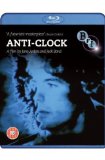 Anti-Clock (Blu-Ray) | Blu Ray | (27/07/2009)
from £13.23
| Saving you £11.76 (88.89%)
| RRP
Anti-Clock (Blu-Ray) | Blu Ray | (27/07/2009)
from £13.23
| Saving you £11.76 (88.89%)
| RRP A complex and fascinating avantgarde examination of time and personality. A film of authentic startling originality brilliantly mixing cinema and video techniques Arden and Bond have created a movie that captures the anxiety and sense of danger that has infiltrated the consciousness of so many people in western society.
![Callan - Series 1 - Part 2 Of 3 - Episodes 4 - 6 [1970]](/pictures/1033592.jpg) Callan - Series 1 - Part 2 Of 3 - Episodes 4 - 6 | DVD | (03/09/2001)
from £19.79
| Saving you £-3.80 (N/A%)
| RRP
Callan - Series 1 - Part 2 Of 3 - Episodes 4 - 6 | DVD | (03/09/2001)
from £19.79
| Saving you £-3.80 (N/A%)
| RRP Introduced in "A Magnum for Schneider", the hour-long 1967 Armchair Theatre episode written by James Mitchell about a disillusioned British secret agent Callan (Edward Woodward), went on to offer four popular (if downbeat) series, a spin-off movie remaking the original story and a some-years-later wrap-up play "Wet Job". Remembered for its very distinctive opening titles, with a swinging broken light bulb and a memorable theme tune, the series adopted a Deighton-LeCarré approach to the grim, treacherous, grubby business of Cold War espionage and made a TV star of the intense Woodward as the sweaty, sometimes conscience-stricken, sometimes robotic Callan. Even in the 21st century this still seems a strong show, its complex stories and impressive performances outweighing a low-budget mix of video and film in the production that makes it seem less "professional" than other shows of the time. In a dramatic device that has long since fallen out of fashion in television, Callan episodes tend to wind up by leaving the audience to work out all the connections of the plot while Callan himself sits gloomily and ponders the wretchedness of his squalid world. --Kim Newman
![Callan - Series 1 - Part 1 Of 3 - Episodes 1 - 3 [1970]](/pictures/1033591.jpg) Callan - Series 1 - Part 1 Of 3 - Episodes 1 - 3 | DVD | (03/09/2001)
from £6.98
| Saving you £9.01 (129.08%)
| RRP
Callan - Series 1 - Part 1 Of 3 - Episodes 1 - 3 | DVD | (03/09/2001)
from £6.98
| Saving you £9.01 (129.08%)
| RRP Introduced in "A Magnum for Schneider", the hour-long 1967 Armchair Theatre episode of Callan written by James Mitchell about a disillusioned British secret agent of the same name (starring Edward Woodward), went on to offer four popular (if downbeat) series, a spin-off movie remaking the original story and a some-years-later wrap-up play "Wet Job". Remembered for its very distinctive opening titles, with a swinging broken-light bulb and a memorable theme tune, the series adopted a Deighton-LeCarré approach to the grim, treacherous, grubby business of Cold War espionage and made a TV star of the intense Woodward as the sweaty, sometimes conscience-stricken, sometimes robotic Callan. Even in the 21st century this still seems as strong, its complex stories and impressive performances outweighing a low-budget mix of video and film in the production that makes it seem less "professional" than other shows of the time. A great deal of the series opener is devoted to bringing on new regulars. Theres a fresh Mr Hunter who, like Number Two on The Prisoner--with which Callan shares series editor George Markstein--was a title not a name, so several actors held the position over the course of the show. Theres also the trendily mulleted thug Cross (Patrick Mower), who would go spectacularly off the rails in the next series and a half. In a dramatic device that has long since fallen out of fashion in television, Callan episodes tend to wind up by leaving the audience to work out all the connections of the plot while Callan himself sits gloomily and ponders the wretchedness of his squalid world. --Kim Newman
![The Big Trees [1952]](/pictures/1047698.jpg) The Big Trees | DVD | (01/09/2003)
from £N/A
| Saving you £N/A (N/A%)
| RRP
The Big Trees | DVD | (01/09/2003)
from £N/A
| Saving you £N/A (N/A%)
| RRP ![Callan - Series 1 - Part 3 Of 3 - Episodes 7 - 9 [1970]](/pictures/1033593.jpg) Callan - Series 1 - Part 3 Of 3 - Episodes 7 - 9 | DVD | (03/09/2001)
from £11.92
| Saving you £4.07 (34.14%)
| RRP
Callan - Series 1 - Part 3 Of 3 - Episodes 7 - 9 | DVD | (03/09/2001)
from £11.92
| Saving you £4.07 (34.14%)
| RRP Introduced in "A Magnum for Schneider", the hour-long 1967 Armchair Theatre episode written by James Mitchell about a disillusioned British secret agent Callan (Edward Woodward), went on to offer four popular (if downbeat) series, a spin-off movie remaking the original story and a some-years-later wrap-up play "Wet Job". Remembered for its very distinctive opening titles, with a swinging broken light bulb and a memorable theme tune, the series adopted a Deighton-LeCarré approach to the grim, treacherous, grubby business of Cold War espionage and made a TV star of the intense Woodward as the sweaty, sometimes conscience-stricken, sometimes robotic Callan. Even in the 21st century this still seems a strong show, its complex stories and impressive performances outweighing a low-budget mix of video and film in the production that makes it seem less "professional" than other shows of the time. In a dramatic device that has long since fallen out of fashion in television, Callan episodes tend to wind up by leaving the audience to work out all the connections of the plot while Callan himself sits gloomily and ponders the wretchedness of his squalid world. --Kim Newman
![The Big Trees [1952]](/pictures/1012999.jpg) The Big Trees | DVD | (15/10/2001)
from £13.97
| Saving you £-2.72 (N/A%)
| RRP
The Big Trees | DVD | (15/10/2001)
from £13.97
| Saving you £-2.72 (N/A%)
| RRP In The Big Trees Kirk Douglas plays Jim Fallon a hard-nosed lumberjack intent on making his fortune from California's famous giant redwood trees. The territory he has designs on though is inhabited by a religious colony that begs him not to strip their land of the mighty sequoias... Released in 1952 Douglas is at his dynamic best in this beautifully photographed film set in picturesque Northern California. Presented in its original Academy Frame aspect ratio this special editio
![Callan - Third Series [DVD]](/pictures/1151720.jpg) Callan - Third Series | DVD | (03/02/2007)
from £N/A
| Saving you £N/A (N/A%)
| RRP
Callan - Third Series | DVD | (03/02/2007)
from £N/A
| Saving you £N/A (N/A%)
| RRP 
Please wait. Loading...
This site uses cookies.
More details in our privacy policy